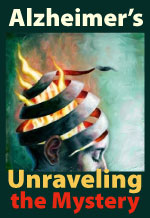By Dr. Gail Gross
 In today’s busy world, we hear a lot about remembering to slow down, to unplug from technology, and to find ways to de-stress. I, myself, have written about the many benefits of meditation and yoga — not just for adults, but for children as well. There is another method I recommend, and that is the daily practice of journaling.
In today’s busy world, we hear a lot about remembering to slow down, to unplug from technology, and to find ways to de-stress. I, myself, have written about the many benefits of meditation and yoga — not just for adults, but for children as well. There is another method I recommend, and that is the daily practice of journaling.
The very act of writing has been scientifically shown to be a beneficial creative process. By putting pen to paper, you are using the left side of your brain, which is critical and rational. This gives the right side of your brain a chance to access your feelings and intuition without any mental blocks.
Other health benefits of journaling include:
- Improved immune system
- Reduced blood pressure
- Improved lung and liver function
–
In my experience researching the neuroscience behind stress and relationships, women –especially mothers — tend to repress their feelings of pain and depression in order to focus on the needs of others, such as their children, spouses, relatives. By taking a few minutes each day to write down those feelings, without hesitation or editing, unblocks the reservoir of energy spent in repression and allows women to use that energy for self-discovery and healing.
FOUR TIPS TO MAKE THE MOST OUT OF JOURNALING
1. Write consistently. Think of journaling as a daily practice that you would incorporate into your routine as you would yoga or running. Aim to write in your journal each day for 20 minutes. The day-to-day expectation of creativity effectively confronts the thoughts and feelings that are keeping us up at night.
2. Consider starting out each day journaling. A 2012 University of Toronto study published in the journal Emotion has shown that people are more optimistic in the morning. Writing first thing in the morning helps give you a fresh perspective and the chance to start the day off with a clear mind.
3. Never self-edit. Write freely, without worrying about spelling or grammar, and without the burden of worrying about what others might think about the words you choose. This journal is for you, and you alone. It might take practice, as we are programmed throughout our lives to write for others, but once you get into the habit of writing freely, you will start to get a clearer picture of what your true feelings are and then be able to work through them.
4. Record it all: the good, the bad, the ugly. It is important to list the happiest moments of your life as well as the lowest moments of your life. This helps give you perspective of the complete picture. In reviewing your journal, you will be able to step back and see the whole story of who you are and how you got to where you are: what defines you, and where you want to go. Further, self-analysis builds self-worth by validating the entirety of your world-view, including your goals and values.
As you continue with your new journaling practice, you will begin to see your life through new eyes: you can now look at and clarify events that have shaped you. This in turn gives you a sense of control and reduces stress. A regular practice of journaling offers you the chance to explore your innermost thoughts and emotions, to know yourself better, and to engage in the most intimate and most important relationship you can ever have: with your true self. As my mother was fond of saying: “To know all, is to forgive all.”
Follow Dr. Gail Gross on Twitter: www.twitter.com/DrGailGross
Source: http://www.huffingtonpost.com/dr-gail-gross/benefits-journaling_b_5588478.html
Related Online Continuing Education (CE/CEU) Courses:
Writing it Out: Journaling as an Adjunct to Therapy is a 2-hour online CE course on the use of journal writing as an aid to the therapeutic process. While most psychotherapy is conducted through traditional “talking therapy,” having a client express himself through the written word offers another way to let him vent his thoughts and feelings, and to gain information about his internal and external experiences of life. This course includes descriptions of the various uses of journaling as well as detail on seven journal-writing techniques. Closeout Course #20-13 | 2003 | 21 pages | 12 posttest questions | $14 (reg $28)
Journaling II: Directed Exercises in Journaling is a 4-hour online CE course designed for the practitioner who would like to use journal-writing exercises with clients as an adjunct to traditional psychotherapy, and would like some topic ideas to suggest, rather than limiting writing only to the technique of “freewriting.” It is suggested, although not mandatory, that the practitioner has already completed the course #20-13, “Writing It Out: Journaling as an Adjunct to Therapy.” That course lays the basic foundation for understanding the benefits of journaling and how it can best be used with clients. It also teaches a number of basic writing techniques. Journaling II presents a brief overview of “freewriting,” as well as 36 directed exercises divided into three phases. It also offers interpretive questions coordinating with each exercise and an explanation of the use of a behavior log as a journaling exercise. Closeout Course #40-03 | 2005 | 41 pages | 20 posttest questions | $28 (reg $56)
Professional Development Resources is approved by the American Psychological Association (APA) to sponsor continuing education for psychologists; by the National Board of Certified Counselors (NBCC) to offer home study continuing education for NCCs (#5590); the Association of Social Work Boards (ASWB #1046, ACE Program); the California Board of Behavioral Sciences (#PCE1625); the Florida Boards of Clinical Social Work, Marriage & Family Therapy, and Mental Health Counseling (#BAP346) and Psychology & School Psychology (#50-1635); the Ohio Counselor, Social Worker & MFT Board (#RCST100501); the South Carolina Board of Professional Counselors & MFTs (#193); and the Texas Board of Examiners of Marriage & Family Therapists (#114) and State Board of Social Worker Examiners (#5678).
Like this:
Like Loading...















